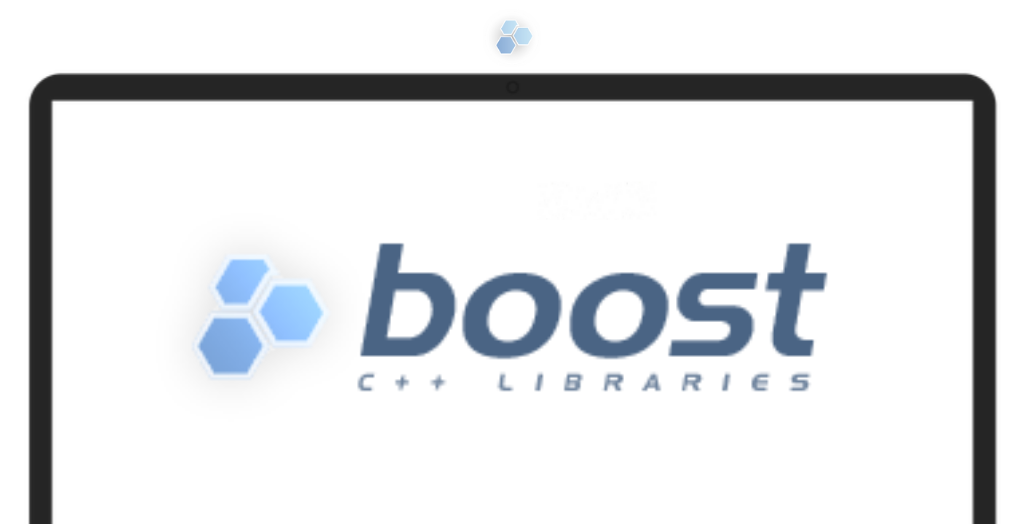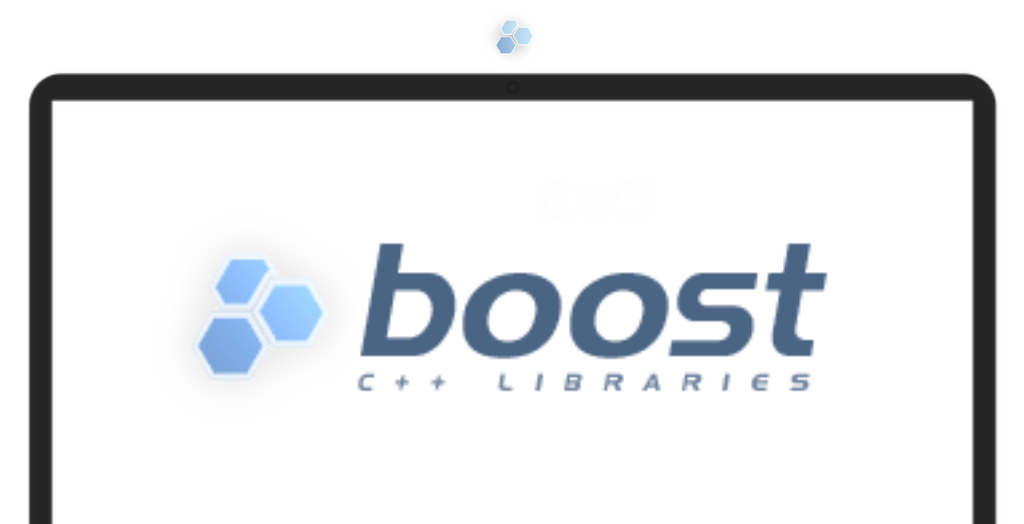
Boost C++ Libraries
v1.84.0
By Boost Software License
Date Added: 21-Feb-2024
(FREE APPLICATION)
Boost Provides Free Peer-Reviewed Portable C++ Source Libraries.Boost C++ Libraries are a popular and cherished resource in the world of C++ programming. With over two decades of development, they have garnered a dedicated following within the C++ community, thanks to their robustness, cross-platform compatibility, and user-friendliness. One of the primary advantages of Boost lies in its extensive collection of libraries, catering to a wide array of programming needs. For instance, the Boost Filesystem library equips developers with a cross-platform toolkit for working with files and directories. It offers functions for creating, deleting, renaming files and directories, as well as accessing attributes like file size and modification timestamps. Similarly, the Boost Regex library simplifies text processing tasks with its classes and functions for handling regular expressions, facilitating tasks such as pattern matching and text replacement. Boost's commitment to portability is another notable feature. These libraries are designed to seamlessly function on various platforms, including Windows, macOS, Linux, and more. This adherence to the C++ standard and provision of platform-independent abstractions for common tasks like file operations, threading, and networking allow developers to create applications that can smoothly operate on different operating systems without code modification. Boost also provides libraries for concurrent and parallel programming. The Boost Thread library offers a set of classes and functions for creating and managing threads, simplifying the development of multithreaded applications. It includes support for thread synchronization, inter-thread communication, and thread-local storage. Similarly, the Boost Asio library is a valuable resource for building high-performance network applications that can efficiently handle numerous concurrent connections through asynchronous I/O operations. Beyond the aforementioned libraries, Boost offers several other useful ones for diverse purposes. For example, the Boost Date Time library equips developers with classes and functions to work with dates and times, supporting time zones, calendars, and date arithmetic. The Boost Program Options library provides a flexible and straightforward way to handle command-line options and arguments, offering parsing, validation, and generating usage messages and help text. A significant strength of Boost lies in its community. With a large and active user base, it offers support, reports bugs, and welcomes feature requests. The community actively contributes to the library's development, introducing new features and fixing issues. Being an open-source project, Boost welcomes contributions from anyone, fostering a dynamic community dedicated to enhancing the library and making it more valuable for C++ developers. Moreover, Boost includes libraries related to the C++ standard library. The Boost Containers library offers containers that can be used as direct replacements for standard containers, providing additional features and performance enhancements. Similarly, the Boost Smart Pointers library offers smart pointers that enhance safety and ease of use over standard pointers. In conclusion, Boost C++ Libraries are an indispensable resource for C++ developers seeking to create robust, portable, and efficient code. Their extensive library offerings address a wide range of common programming tasks, while their focus on portability and scalability ensures compatibility with various platforms and workloads. Although mastering Boost may require some effort, the active community provides ample support and resources for developers willing to invest time and effort in harnessing this powerful tool. Some of the key features of Boost are: Large collection of libraries: Boost provides a large collection of libraries that can be used for a variety of tasks, including data structures, algorithms, networking, and inter-process communication. Portability: Boost is designed to work on a wide range of platforms, including Windows, macOS, Linux, and many others. This makes it easier to write cross-platform applications that can run on different operating systems without having to modify the code. Focus on C++ standards: Boost adheres to the C++ standards and provides platform-independent abstractions for common tasks like file I/O, threading, and networking. Concurrent and parallel programming: Boost provides several libraries for working with concurrent and parallel programming, including the Boost Thread library for creating and managing threads, and the Boost Asio library for building scalable network applications using asynchronous I/O operations. Support for regular expressions: The Boost Regex library provides a set of classes and functions for working with regular expressions, making it easier to perform text processing tasks like pattern matching and text replacement. Date and time handling: The Boost Date Time library provides a set of classes and functions for working with dates and times, including support for time zones, calendars, and date arithmetic. Command-line options handling: The Boost Program Options library provides a simple and flexible way to handle command-line options and arguments. Smart pointers: The Boost Smart Pointers library provides a set of smart pointers that can be used as replacements for the standard pointers, providing additional safety and ease of use over the standard pointers. Containers: The Boost Containers library provides a set of containers that can be used as drop-in replacements for the standard containers, offering additional features and performance improvements over the standard containers. Numeric computation: The Boost Numeric library provides a set of classes and functions for numeric computation, including support for random number generation, linear algebra, and numerical integration. Input and output handling: The Boost IO library provides a set of classes and functions for input and output handling, including support for formatted input and output, memory-mapped files, and streaming. Inter-process communication: The Boost Interprocess library provides a set of classes and functions for inter-process communication, including support for shared memory, message queues, and synchronization primitives. Testing: The Boost Test library provides a set of tools for unit testing and test-driven development, including support for automatic test discovery, test fixtures, and mock objects. Graphs and networks: The Boost Graph library provides a set of classes and functions for working with graphs and networks, including support for graph algorithms, graph visualization, and graph serialization. Filesystem handling: The Boost Filesystem library provides a cross-platform API for working with files and directories, including support for creating, deleting, and renaming files and directories, and accessing file attributes like file size and modification time. Unicode handling: The Boost Unicode library provides a set of classes and functions for working with Unicode strings, including support for character encoding conversion, case folding, and normalization. Overall, Boost provides a comprehensive set of high-quality libraries that can be used to solve a wide range of programming tasks. Its focus on portability, scalability, and ease of use makes it a popular choice for C++ developers who want to write robust and efficient code. 
System Requirements:Windows 7 / Windows 8 / Windows 10 / Windows 11 Date Added:21-Feb-2024 License:Free Languages:English Developer By:Boost Software Licensehttps://www.boost.org/ |
Relative Softwares |
|---|









